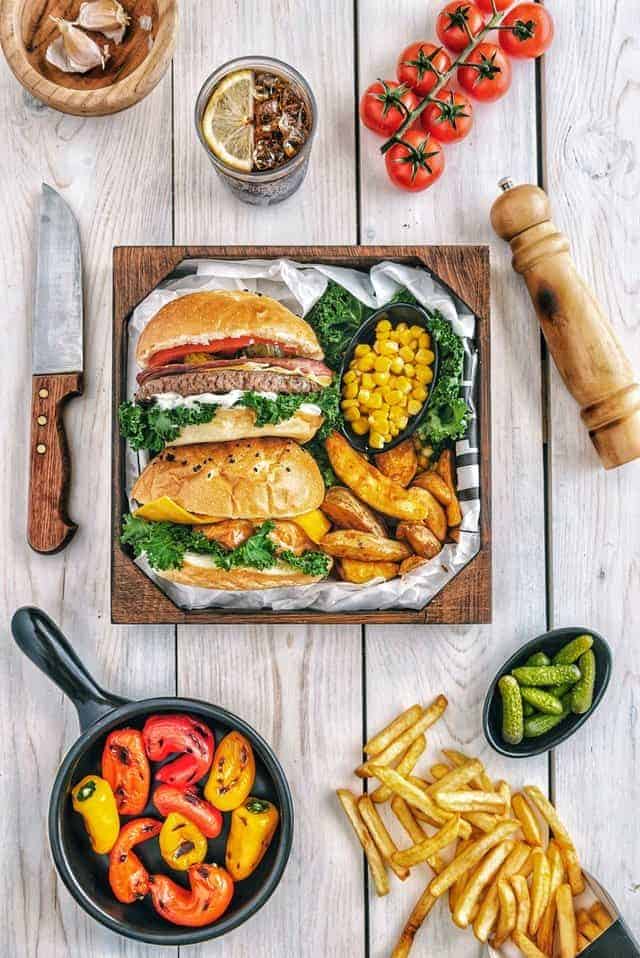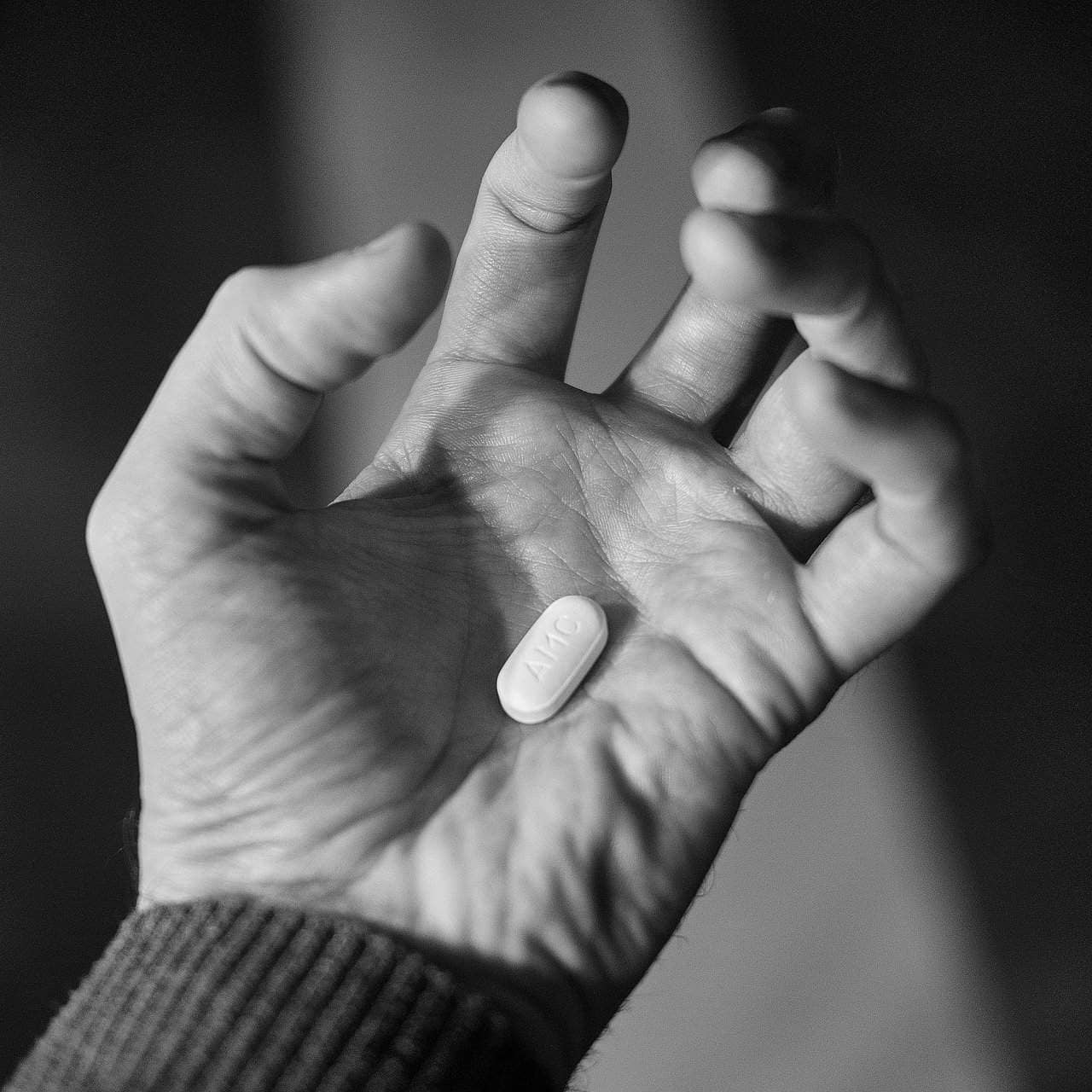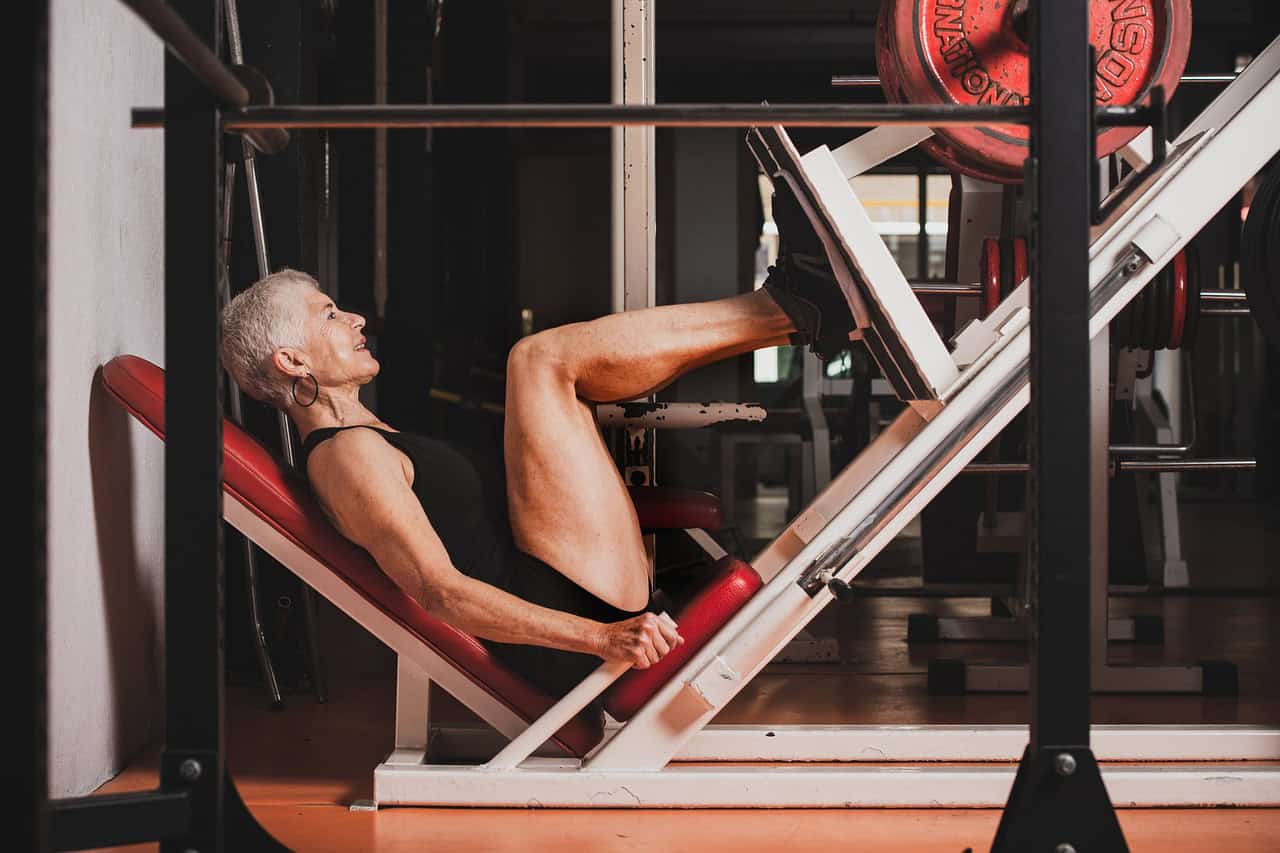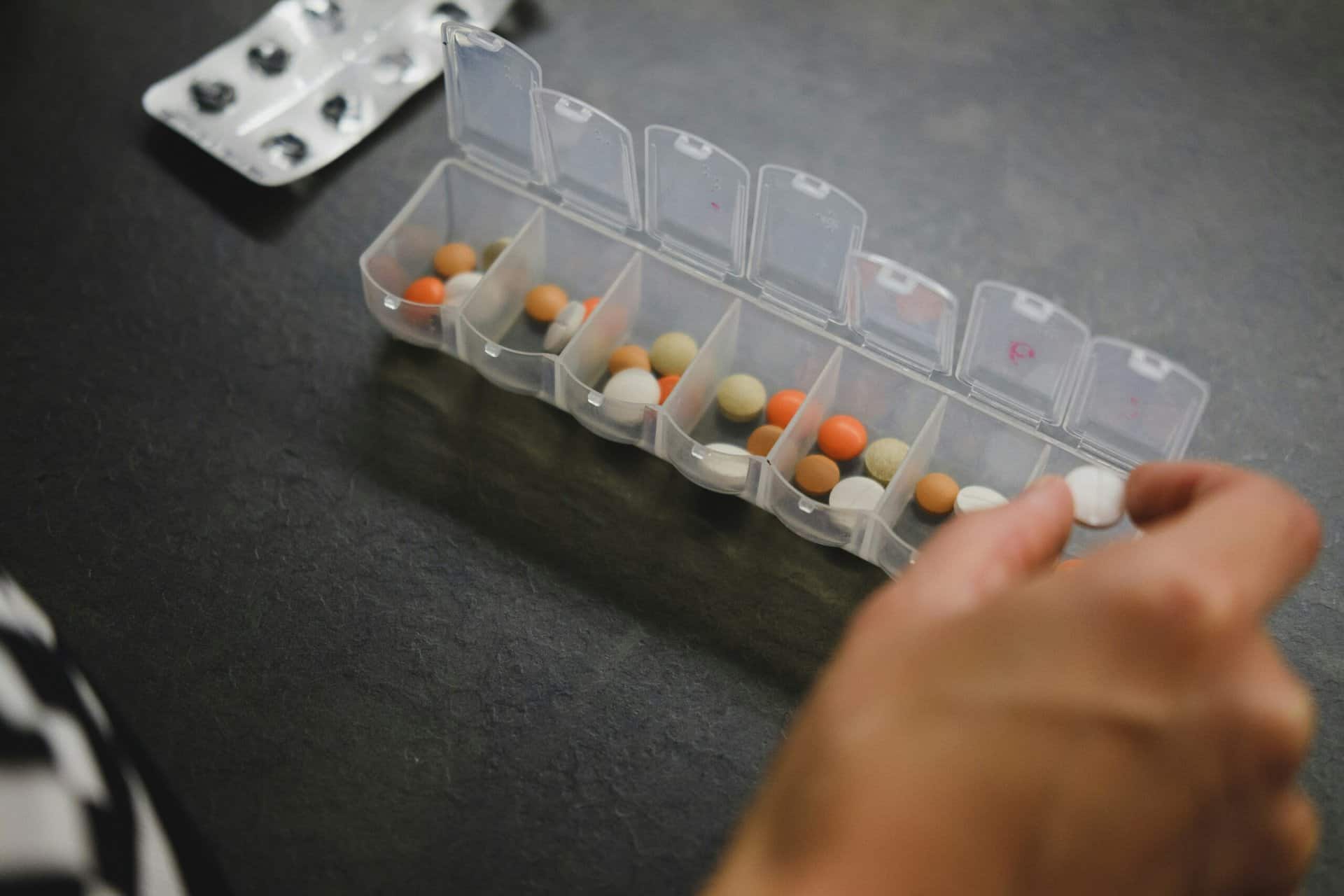
I remember something my grandfather would say on a regular basis – “I refuse to make a garbage can out of my stomach!”
Now I was a skinny middle schooler playing basketball in earnest and just thought his statement was interesting but strange. And this was the late 50’s – when sugar was touted as a dietary aid for quick energy and the new modern age of highly processed foods was seen as wonderfully liberating to housewives. Back then, I never heard words like gluten-free, dairy-free, non-GMO, etc.
But I think he was on to something more important than just the type of food being consumed.
As I look back, I think about what a good businessman he was (first Ford dealership in West Texas), how intelligent he was (beat everyone at Scrabble and all his words were in the huge dictionary they rolled around on a stand during the family “tournaments”) and more importantly, he was a disciplined, common-sense man (home for lunch daily and nap until 1pm from which he awoke automatically without an alarm and went straight back to work).
So, as I hit my 60’s and 70’s and found it a struggle to turn around creeping weight-gain and, frankly, just got hopping mad at the number I saw on the scale one morning, then I hit the “weight loss” topic on the internet with intensity.
What I learned over the next months of exploring and testing brought me back to the wisdom of my grandfather.
Weight Loss — a Common Issue
Several years back (when I got so “mad” at the number on the scale) prior to knowing about Youngevity, I bought the book by Dr. Barry Sears outlining the Zone Diet – and it worked great for me as I followed it religiously. Where did I stray and quit following it and start the creep-up?
I knew a couple of the people who lost an amazing amount of weight following the Youngevity weight loss program a few years ago after I came into Youngevity. They used the ASAP (As Slim As Possible) drops which were later replaced by the Rev drops along with a specific eating plan and full nutrification in the 90forLife core product. Plus one of my downlines more recently did a great job of losing the weight she wanted and keeping it off following this plan.
Since I am at this time fully on board with the 90forLife in nutrifying my body, I found it helped with my health. I started looking around at other options dealing with the food situation. I tried the Keto diet and products Youngevity had – they are good and worked well….until they didn’t.
Then through brainstorming with other Youngevity friends, I learned of the “fasting” subject which worked well for them. I purchased Brad Pilon’s book “Eat Stop Eat” and read up on it – told you I was intense! I decided to try his 24-hour fast – thought I would die, but I didn’t.
And I found later efforts were easier – and seemed to help my weight gain issue. Helped my digestion, too. Made it part of a routine and it was ok until it wasn’t. The less drastic 16 hour fast was easier. More on this in a minute.
During the same time, I learned of Susan Peirce Thompson, Ph.D. in Brain and Cognitive Sciences – a college professor and Assistant Chair of the Psychology Dept. who wrote a book titled “Bright Line Eating” which she has now leveraged into an online business.
I took her beginning course and, of course, read her book (intensely) and implemented her ‘bright lines’ – the rules, or lines in the sand, she has drawn to help herself and others get “thin, happy and free” as she puts it.
I gained a big item from her system (ok, yes, I bought the food scale, weighed my food for each meal, stayed on the “no eating between meals” path, and spent hours figuring out what to eat, and not eat). It worked ok until it didn’t.
Remember, her background was the psychology and science of the brain. Here’s an important excerpt from her email to me:
One of the biggest mistakes that people make
when trying to lose weight is they RELY ON THEIR WILLPOWER. Unfortunately, due to our hectic lives, when the time comes to making a healthy food choice, your willpower is likely exhausted. So, what is the solution? You have to take the willpower out of the equation by developing AUTOMATICITY around your food choices.
I struggled after a while in trying to make my actions automatic and consistent.
Please know that all of the people and systems I have mentioned work well for many people and in no way do I mean to disparage them. I have learned from each of them – and incorporated the parts that worked for me into my life.
I am specific with you about my experiences because it shows my failing these systems due to my own lack of rooting out my “thinking about food” which I think undermined my efforts everywhere I turned.
…until a series of things happened to re-focus my thinking
I think the Lord knew what was coming and set me up with preparation work I needed. A Korean chaplain told me of a book he recommended (and I LOVE to read). That leads me to another 2 books similar in setting. Here they are:
Not Forgotten: The True Story of My Imprisonment in North Korea by Kenneth Bae
A Thousand Miles to Freedom: My Escape from North Korea by Eunsun Kim
A River in Darkness: One Man’s Escape from North Korea by Masaji Ishikawa
The most poignant picture which was key to me in all these was painted in Eunsun Kim’s book which opened in North Korea with her waiting for her mother and sister to return from their trip to a neighboring town in hopes of finding food – they were long overdue the 3 days estimated for the trip and the one piece of tofu she had was long gone.
Her words “…I hardly felt the cold at all because I was completely exhausted after several days without eating. I was sure that I was about to die of hunger. And so I started to write my last will and testament. I was eleven years old.”
Wow – the conditions in these true stories, the repeated hunger, starvation and scarcity of food was replete in each of them. It made me re-think how I picture food. Do I “Live to Eat?” or do I “Eat to Live?” Big question that I needed to sort out for myself with gut-pure honesty.

“Back to the Garbage Can“
So I am back to the wisdom of my grandfather’s statement.
But just “knowing it” and “believing it” was not enough. I had to decide to re-picture FOOD and it’s role in my life by using my grandfather’s picture of a garbage can every time I was going to eat beyond the amounts I needed.
I knew how much food I needed plus I knew the message had to go to my brain that it was enough food and I would not ‘starve’.
I want to circle back to the first time I did the 24-hour fast recommended by Brad Pilon – I was certain I would faint away into a starvation stupor during the experience but I kept in my mind the words of Eunsun Kim and her situation. I thought about what was truly necessary for my body to function well.
And I just kept drinking my nutrition drink and whatever else healthy I could drink instead of turning to food before the time was up. And I stayed busy with other things. I made it through and had good results, plus it was easier the next times I did it.
But my mind needed to experience the fact that I “could” make it through. And I didn’t die — Duh!
Of course, I had to keep reminding my mind until it became habitual thinking that it knew my body only NEEDS a certain amount of food. When it comes to mind to go grab something to eat, or someone offers food, I just ask myself if I am “living to eat” or “eating to live”.
Then the garbage can picture pops up!
I still often weigh my food – but not because of a “rule” imposed by another person. Only because I know how much my body needs and I don’t want any more than that (here comes the garbage can).
MY POINT?
I want to challenge you to think through how you picture and think about food. How much food do you really need to power your body sufficiently and healthily.
And why more food than that gets put into our bodies? Is one bite of the chocolate cake great and enough to savor – and do we really need that? Or a full slice, or 2 slices, etc.? Where does it end? What is the difference?
It is in our thinking – and our habits of eating which follow and impact our body.
So….’nuff said. Just wanted to pass along the experience in hopes it will be helpful to you as you search for better health, which does include staying in a certain weight range, right?
Only if it is helpful, I add here where I am in my daily food habits now. And I would love to have your suggestions, tips, wisdom, and responses in the comments section – please!
Morn: 1 cup bulletproof tea (I prefer tea to coffee) – Sweet & Spicy teabag, hot water, 2 tbsp. Ghee, 2 tbsp dairy-free NutPods (creamer). Also, drink Beyond Tangy Tangerine 2.0 & ZRadical.
Drink throughout the morning – BTT drink plus add more water to it here and there.
Noonish: 2 strips bacon, 2 scrambled eggs – Triple Treat Chocolate square within 30 min or so
Drink throughout the afternoon (and actually all day) – water with YGY drink paks with various mineral and vitamins.
6-7pm dinner: 4 oz meat, 4+ oz vegetable or side – Triple Treat square within 30 min or so
9 pm or so: 1 cup Beyond Hot Chocolate with 1 tbsp dairy-free NutPods (creamer) in it
Snacks – I try to stay busy and not think I need a snack but if I do, I use almonds (but only 5-6 at a time a couple of times a day) or sunflower seeds; if really struggling in mid-afternoon I do a hard-boiled egg fully salted all around.
In the past 6 weeks, I have slowly lost the 7 pounds that were bugging me when I looked at the recent vacation pictures we took and I want to keep going a bit further.
I will not change my eating pattern or amount because I don’t see this as a DIET – it is all the food I need to be healthy and strong. Yes, I have to keep reminding myself at times that I “eat to live” and I don’t “live to eat” – so I picture a garbage can stomach!
Still firming up the “habitual thinking” on this.
P.S. If you want to explore the habit part further, I can recommend The Power of Habit: Why We Do What We Do in Life by Charles Duhigg.
This is Candy McCune, your Guide to Better Health, and remember Education Empowers you to Engage Better Health!
Food and dietary supplement products sold by Youngevity are intended to contribute to the daily diet and overall health and are not intended for use in the prevention, treatment, mitigation, or cure of any disease or health-related condition. Individuals who have or suspect they have an illness or who wish to commence a diet or exercise program should consult an appropriately licensed health care practitioner for a medical history evaluation, diagnosis, treatment, and health recommendations.


